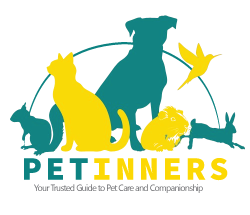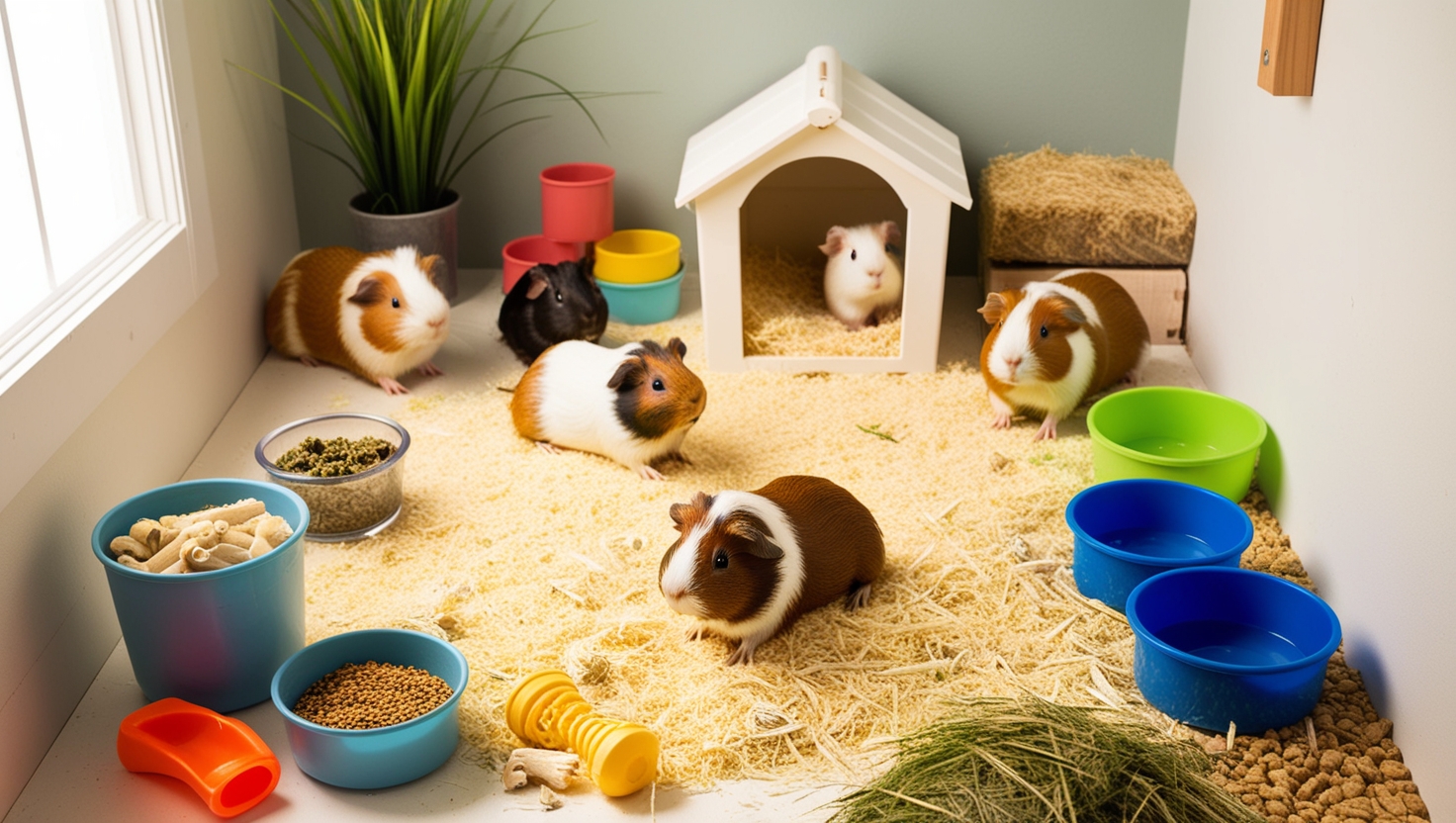Maintaining a clean guinea pig enclosure is essential for their health and well-being. Regular cleaning helps prevent bacterial buildup, urinary infections, and bad odors, while also providing a safe and pleasant environment. Setting a weekly routine for deep cleaning and addressing grooming needs will help your guinea pigs thrive, keeping them happy and healthy.
Maintaining a Clean Guinea Pig Enclosure: Avoiding Common Mistakes
Neglecting your guinea pig’s enclosure can lead to several problems. Taking care of the enclosure not only keeps it looking clean and presentable but also helps control bacteria, prevent urinary tract infections, and limit unpleasant odors. It’s important to establish a routine for cleaning. Even if you remove droppings, old food, and wet bedding daily, the enclosure should be thoroughly cleaned at least once a week.
Setting a specific time each week for this deep cleaning can make it easier to maintain a healthy environment for your guinea pigs. A clean enclosure contributes to their overall health and happiness, ensuring they have a safe and pleasant place to live. Remember, a well-maintained home helps your piggies thrive.
Urgent Health Care for Guinea Pigs: Recognizing Illness Signs and Avoiding Delays
One critical mistake guinea pig owners make is waiting too long if they suspect their pet is ill. Guinea pigs are prey animals and often hide any signs of sickness for as long as possible. This means that by the time you notice something is off, your furry friend could be hours, days, or even weeks into suffering. It’s essential to pay attention to changes from their normal behavior, as these subtle clues can be the first indication of health problems.
If you observe any unusual behavior or changes in your guinea pig, don’t hesitate to consult a veterinarian. Quick action can make a significant difference in their recovery. Remember, being proactive about your pet’s health helps ensure they stay happy and healthy. Your prompt response can prevent small issues from becoming serious problems, keeping your guinea pig safe and comfortable.
The Importance of Grooming: Avoiding Common Mistakes for Guinea Pig Owners
One common mistake guinea pig owners make is neglecting grooming. Keeping up with nail trims and fur brushing is essential for your pet’s health. If a guinea pig’s nails grow too long, they can split, break, or even cause pain when walking. Regularly checking and trimming their nails helps prevent these issues, ensuring your furry friend stays comfortable. It’s also important to brush their fur to keep it clean and free from tangles, promoting overall well-being.
Baths for guinea pigs are generally only needed if they get dirty or if they are preparing for a show. Owners often underestimate how crucial it is to care for their guinea pig’s grooming needs. Regularly inspect their fur and nails, looking out for changes such as bald patches, parasites, or overly long claws. This proactive approach not only keeps your guinea pig looking good but also prevents discomfort and pain, contributing to a happier, healthier pet.
Choosing the Right Vet: Avoiding Common Mistakes for Guinea Pig Owners
When it comes to guinea pigs, one of the biggest mistakes many owners make is taking them to the wrong vets. Guinea pigs are often classed as exotic pets by the majority of vets, meaning that a regular dog or cat vet might not be equipped to handle their unique needs. If you bring your guinea pig to a vet who doesn’t have experience with them, they likely won’t know what to do and may either refer you to a specialist or, worse, attempt to treat your pet themselves. This can lead to things going horribly wrong, making it essential that your vet is cavy-savvy to ensure your guinea pig’s wellbeing.
Over the years, I’ve had several guinea pigs, and they’ve faced a surprisingly large number of health problems at various ages. From respiratory infections and ovarian cysts to more serious conditions like cancer and diabetes, guinea pigs can suffer from many issues. I’ve also dealt with a prolapsed uterus, cataracts, and minor problems like scratches and parasites. While I’ve learned to treat early infestations of mange or small cuts at home, most conditions require professional help—and often come with a hefty vet bill.
Making sure your vet is well-versed in treating guinea pigs is not just a matter of convenience—it’s a necessity for their health. A specialist vet will know exactly what to look for and how to address common ailments, saving you from costly mistakes and ensuring your guinea pig receives the best care possible.
Essential Guinea Pig Care Tips for New Owners: Avoid Common Mistakes
This was written in the best interest of the health and longevity of your cavies. Guinea pigs are precious little pets, but they have unfortunately short life spans. As a new owner, it’s essential to understand how to give them the best care possible. By following these tips and guidelines, you can hopefully help your pets live longer, happier lives. It’s important to remember that optimal care can make all the difference in your guinea pig’s quality of life, so make sure you’re starting off on the right foot.
This article is accurate and true to the best of the author’s knowledge and was created to provide information that every new owner needs to know. Unfortunately, this advice is sometimes not taken seriously, and animals exhibiting signs and symptoms of distress might not receive timely attention. That’s why it’s crucial to seek out a veterinary medical professional if your guinea pig seems unwell. You should never ignore or substitute this advice for professional care.
Remember, while this article provides helpful guidelines, it is not meant to substitute for a proper diagnosis, prognosis, or treatment from a vet. If your guinea pig shows signs of illness, they should be seen by a veterinarian immediately. Following this advice, you’ll be more confident in your guinea pig care and give your little companions the attention they deserve.

